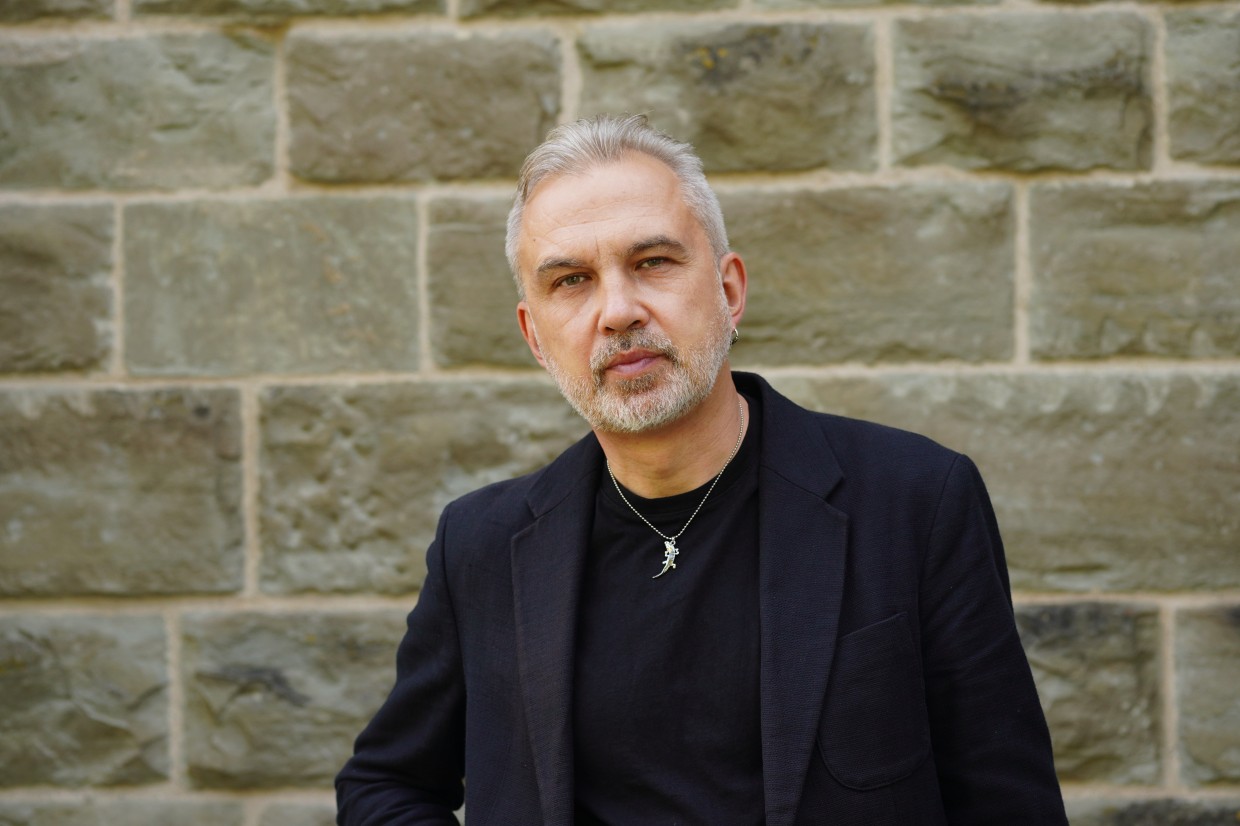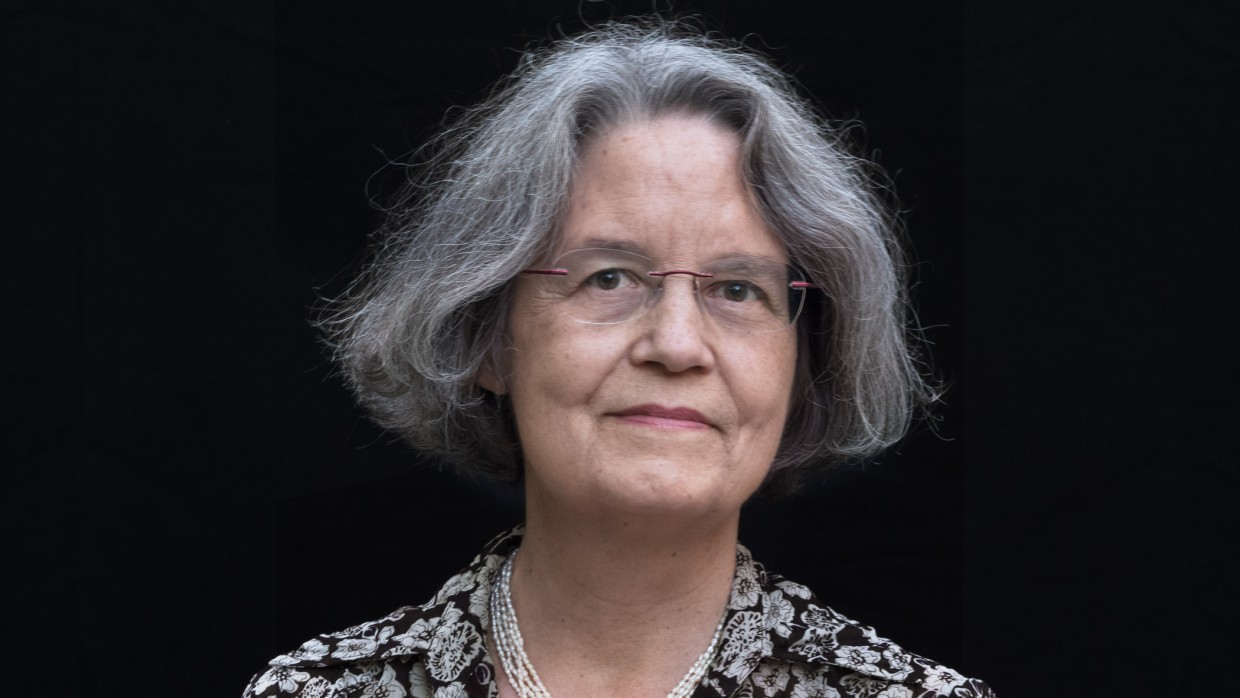Leipzig Book Award for European Understanding
The Leipzig Book Award for European Understanding is one of the most prestigious literature prizes in Germany. It has been awarded annually since 1994 and comes with prize money of 20,000 euros. The prize committee includes the Free State of Saxony, the City of Leipzig, the Börsenverein des Deutschen Buchhandels e.V. (The German Publishers and Booksellers Association) and Leipziger Messe. Cooperation partner is the Federal Agency for Civid Education.
The prize was awarded at the opening ceremony of Leipzig Book Fair on the evening of 26th March 2025 at the Gewandhaus Leipzig.

The Leipzig Book Award for European Understanding 2025 is awarded to Alhierd Bacharevič
The Leipzig Book Award for European Understanding 2025 was awarded to the Belarusian author Alhierd Bacharevič in recognition of his novel Dogs of Europe. The German edition was published by Vo-land & Quist in February 2024. The text was translated from Belarusian and Russian by Thomas Weiler.

He was introduced by literary critic, author and editor Sieglinde Geisel.
Statement from the jury:
The jury's verdict read: “In his novel Dogs of Europe, Alhierd Bacharevič succeeds in creating a furious literary vision of the future and a sheer uncontainable narrative. Even its title, which refer-ences a poem by W.H. Auden, points to the direction that the author intends to take: ‘In the night-mare of the dark/ All the dogs of Europe bark’. Bacharevič, who was born 1975 in Minsk and has lived in exile as a writer and translator since 2020, follows Auden’s advice: ‘Follow, poet, follow right/ To the bottom of the night ...’. His descent takes him into the darkest nooks and crannies of our present age, whose incendiary contradictions he ignites into a wildfire that in 2050 rages be-tween Minsk, Vilnius, a Mediterranean island, Hamburg, Prague and Berlin.”
The jury continued: “The untethered mix of political thriller, epic, adventure story, satire and fairy tale points to works by authors as varied as James Joyce, Jonathan Swift, Selma Lagerlöf and Joseph Brodsky, as well as Alexander Pushkin, Vladimir Nabokov and Paul Celan. An eccentric good-for-nothing crops up as the inventor of a utopian language, a fearless boy assists a spy and, like Nils Holgersson, finds refuge under the wings of a grey goose, while the healing powers of a withered mother are in demand right across the dictatorial hyper-state. It would be impossible to tell a more passionate story about Europe and its dark abysses.”
Critical and fair: the jury
- Gundula Sell (Saxon State Ministry for Science, Culture and Tourism, jury chair)
- Dr. Maike Albath (literary critic and author)
- Michael Lemling (manager of the book shop Lehmkuhl)
- Dr. Lothar Müller (literary critic and journalist)
- Daniela Strigl (essayist, critic, lecturer, Vienna)
Previous award winners
- 2024: Omri Boehm (Germany-Israel)
- 2023: Maria Stepanova (Russia)
- 2022: Karl-Markus Gauss (Austria)
- 2021: Johny Pitts (Great Britain)
- 2020: László Földényi (Hungary)
- 2019: Masha Gessen (USA)
- 2018: Åsne Seierstad (Norway)
- 2017: Mathias Énard (France)
- 2016: Heinrich August Winkler (Germany)
- 2015: Mircea Cărtărescu (Romania)
- 2014: Pankaj Mishra (India)
- 2013: Klaus-Michael Bogdal (Germany)
- 2012: Ian Kershaw und Timothy Snyder (Great Britain and USA)
- 2011: Martin Pollack (Austria)
- 2010: György Dalos (Germany)
- 2009: Karl Schlögel (Germany)
- 2008: Geert Mak (Netherlands)
- 2007: Gerd Koenen (Germany) und Michail Ryklin (Russia)
- 2006: Juri Andruchowytsch (Ukraine)
- 2005: Slavenka Drakulić (Croatia), lebt in Stockholm, Wien und Sovinjak (Croatia)
- 2004: Dževad Karahasan (Bosnia & Herzegovina), lebt in Graz und Sarajevo
(Recognition Award: Gábor Csordás, Hungary) - 2003: Hugo Claus (Belgium)
(Recognition Award: Barbara Antkowiak, Germany) - 2002: Bora Ćosić (Croatia), lebt in Rovinj (Croatia) und Berlin
(Recognition Award: Ludvik Kundera, Czech Republic) - 2001: Claudio Magris (Italy)
(Recognition Award: Norbert Randow, Germany) - 2000: Hanna Krall (Poland)
(Recognition Award: Peter Urban, Germany)
Detailed information on the Leipzig Book Award for European Understanding, previous prize winners, the board of trustees and the panel of judges can be found at www.leipzig.de/buchpreis
Contact
Leipzig Book Award for European Understanding
c/o City of Leipzig, Dezernat Kultur
Karin Rolle-Bechler
Phone: +49 341 123-4207
Email:
buchpreis@leipzig.de
Website:
www.leipzig.de/buchpreis
Media contact:
For review copies and appointments with the award winner before the start of the Leipzig Book Fair:
Nicole Herrschmann
Suhrkamp Verlag
Phone: +49 30 740744-292
Email:
herrschmann@suhrkamp.de







